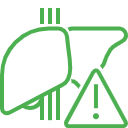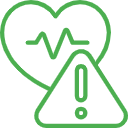Dual Diagnosis Treatment Centers for Addiction and Co-Occurring Issues
Dual diagnosis refers to the simultaneous presence of substance abuse disorders with mental health conditions, such as depression or anxiety.[1] People struggling with dual diagnosis often face unique difficulties, as substance abuse can exacerbate the symptoms of underlying mental health disorders (and vice versa.) This intersectionality often demands integrated care approaches that address both substance abuse and behavioral health symptoms concurrently.
- Over 21 million people in the U.S. experience co-occurring disorders, with statistics revealing a close link between mental health disorders and substance abuse.
- Depression, anxiety disorders, bipolar disorder, PTSD, and ADHD are prevalent alongside addiction, exacerbating each other’s symptoms and effects.
- Several evidence-based therapeutic modalities and approaches can work to address dual diagnosis issues, particularly alongside holistic interventions and whole-person addiction treatment.
What Is Dual Diagnosis?
Dual diagnosis, also known as co-occurring disorders, refers to the simultaneous presence of substance abuse or addiction disorders alongside one or more mental health conditions.[2] This intersectionality creates a complex set of circumstances where the symptoms of one disorder can exacerbate the symptoms of the other, leading to more severe and challenging outcomes overall. The presence of dual diagnosis can complicate the overall treatment and recovery processes, requiring specialized substance abuse treatment that addresses both the addiction and the mental health conditions simultaneously.
According to the Substance Abuse and Mental Health Services Administration’s (SAMHSA) 2022 National Survey on Drug Use and Health, over 21 million adults in the US are struggling with dual diagnosis issues.[3] Moreover, individuals with mental health disorders are more likely to experience substance abuse issues and vice versa. SAMHSA reports that over one in four adults living with serious mental health issues are also experiencing a substance abuse problem.[4]
How Addiction and Mental Health Disorders Influence One Another
Substance use disorders (SUDs) encompass a range of conditions characterized by the excessive and harmful use of substances such as alcohol, illicit drugs, or prescription medications.[5] Symptoms of SUDs may include an inability to control your usage, continued usage despite negative consequences, tolerance (requiring more of the substance to achieve the same effects), withdrawal symptoms upon cessation, and neglect of important responsibilities or activities in your life.[6]
Mental disorders, on the other hand, refer to conditions that affect mood, thinking, and behavior, encompassing a broad spectrum of illnesses such as depression, anxiety disorders, bipolar disorder, and others. Symptoms of mental disorders vary widely depending on the specific condition but may include persistent feelings of sadness or hopelessness, excessive worry or fear, mood swings, hallucinations or delusions, impaired concentration, and changes in appetite or sleep patterns.
When substance use disorders and mental disorders co-occur, they often exacerbate each other’s symptoms and effects. For example, substance abuse can worsen the symptoms of underlying mental health disorders by disrupting neurotransmitter function in the brain or triggering mood swings and cognitive impairments.[7, 8] Similarly, people with mental health disorders may turn to substances as a way to self-medicate or alleviate distressing symptoms, inadvertently exacerbating their substance use problems.[9]
This bidirectional relationship can create a cycle of escalating dysfunction, making it challenging to break free from the grip of dual diagnosis without comprehensive treatment interventions that address both components simultaneously.
Dual Diagnosis Addiction
What Mental Health Disorders Commonly Co-Occur With Addiction?
Several mental health disorders commonly co-occur with addiction, contributing to the complexity of dual diagnosis:[10]

Depression:
Major depressive disorder often coexists with substance use disorders, with individuals using substances as a way to cope with feelings of sadness, hopelessness, or low mood. Conversely, substance abuse can exacerbate depressive symptoms and increase the risk of suicidal thoughts or behaviors.

Anxiety Disorders:
Conditions such as generalized anxiety disorder, panic disorder, and social anxiety disorder frequently occur alongside substance abuse. People may use substances to alleviate symptoms of anxiety temporarily, but this can lead to the development of dependence and worsen anxiety over time.

Bipolar Disorder:
Bipolar disorder involves fluctuations between depressive episodes and manic or hypomanic episodes characterized by elevated mood, impulsivity, and heightened energy levels. Substance abuse is common among individuals with bipolar disorder, often as a means of self-medication during depressive episodes or to amplify euphoric feelings during manic episodes.

Posttraumatic Stress Disorder (PTSD) and Trauma:
PTSD commonly co-occurs with addiction, particularly in individuals who have experienced trauma. Substance use may be used as a coping mechanism to numb distressing memories or alleviate hyperarousal symptoms associated with PTSD.

Attention-Deficit Hyperactivity Disorder (ADHD):
ADHD often co-occurs with substance use disorders, especially in adolescents and young adults. Individuals with ADHD may misuse stimulant medications or other substances to manage symptoms of inattention, impulsivity, or hyperactivity.

Disordered Eating:
Conditions such as anorexia nervosa, bulimia nervosa, and binge eating disorder frequently co-occur with addiction. Substance use can be intertwined with disordered eating behaviors, as people may misuse substances to suppress appetite, control weight, or cope with emotional distress related to their eating disorder.

What Are the Treatment Options at Dual Diagnosis Treatment Centers?
Thankfully, several treatment options are available for the unique needs of dual diagnosis issues. These treatment environments and therapies can work in tandem to provide a comprehensive approach to addressing the challenges of co-occurring issues.
Levels of Care
Therapeutic Modalities
Frequently Asked Questions About Dual Diagnosis Treatment Centers
How long does treatment typically last at a dual diagnosis treatment center?
Treatment duration at dual-diagnosis treatment centers can vary depending on individual needs, the severity of co-occurring disorders, and the specific program offered. While some programs may last for 30 days or less, others may provide longer-term care ranging from 60 to 90 days or more.
Extended treatment durations allow for comprehensive assessment, stabilization, and intensive therapeutic interventions, increasing the likelihood of sustained recovery from both addiction and mental health disorders.
What aftercare and support services are provided upon completion of treatment?
Aftercare and support services are integral components of dual diagnosis treatment programs, aiming to facilitate a smooth transition from residential or intensive outpatient care back to everyday life. These services may include outpatient therapy, support groups, and ongoing care. Aftercare plans are tailored to address each person’s unique needs and promote long-term recovery maintenance.
Are there specialized programs available for specific populations, such as LGBTQ+ individuals?
Can I continue working or attending school while at a recovery center?
Some dual-diagnosis treatment facilities offer flexible treatment options that allow individuals to maintain their employment, education, or other responsibilities while receiving care. Additionally, some dual-diagnosis treatment centers may provide resources for vocational or educational support to help you or your loved one balance the recovery journey with your other life commitments.
Sources
[1] NAMI. (2017, October 4). https://www.nami.org/advocate/understanding-dual-diagnosis on May 24, 2024
[2] MedlinePlus. (2019). Dual Diagnosis. Medlineplus.gov; National Library of Medicine. https://medlineplus.gov/dualdiagnosis.html on May 24, 2024
[3] Substance Abuse and Mental Health Services Administration. (2022). 2022 National Survey on Drug Use and Health (NSDUH) Releases. Www.samhsa.gov. https://www.samhsa.gov/data/release/2022-national-survey-drug-use-and-health-nsduh-releases on May 24, 2024
[4] SAMHSA. (2023, February 7). Mental health and substance use co-occurring disorders. Www.samhsa.gov. https://www.samhsa.gov/mental-health/mental-health-substance-use-co-occurring-disorders on May 24, 2024
[5] Johns Hopkins Medicine. (2019). Substance Abuse / Chemical Dependency. John Hopkins Medicine. https://www.hopkinsmedicine.org/health/conditions-and-diseases/substance-abuse-chemical-dependency on May 24, 2024
[6] Cleveland Clinic. (2022, October 20). Substance Use Disorder (SUD): Symptoms & Treatment. Cleveland Clinic. https://my.clevelandclinic.org/health/diseases/16652-drug-addiction-substance-use-disorder-sud on May 24, 2024
[7] McLellan, T. (2018). Substance Misuse and Substance use Disorders: Why do they Matter in Healthcare? Transactions of the American Clinical and Climatological Association, 128(128), 112–130. https://www.ncbi.nlm.nih.gov/pmc/articles/PMC5525418/ on May 24, 2024
[8] US Department of Health and Human Services. (2016). THE NEUROBIOLOGY OF SUBSTANCE USE, MISUSE, AND ADDICTION. Nih.gov; US Department of Health and Human Services. https://www.ncbi.nlm.nih.gov/books/NBK424849/ on May 24, 2024
[9] National Institute of Mental Health. (2023, March). Substance use and co-occurring mental disorders. National Institute of Mental Health. https://www.nimh.nih.gov/health/topics/substance-use-and-mental-health on May 24, 2024
[10] Bethesda. (2020). Common Comorbidities with Substance Use Disorders Research Report. In PubMed. National Institutes on Drug Abuse (US). https://www.ncbi.nlm.nih.gov/books/NBK571451/ on May 24, 2024



